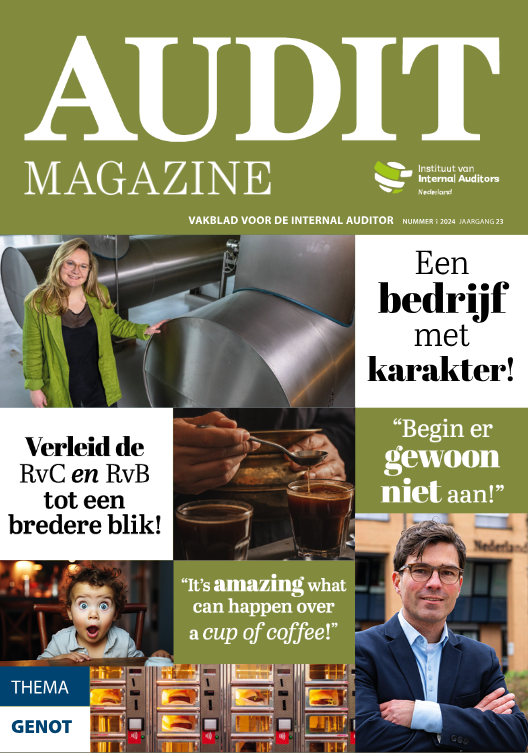02-03-2011
02-03-2011CBOK 2010 Report V: Imperatives for Change | ||
Members of IIA Netherlands can download the full report here.  Executive Summary Introduction The 10 Imperatives for Change, written primarily for chief audit executives (CAEs), represent the fifth in a series of five reports being published by The Institute of Internal Auditors Research Foundation(IIARF) to highlight the findings of The IIA’s 2010 Global Internal Audit Survey. This report, whichbuilds off of the detailed findings found in the first four reports, presents a series of overarching topicsunder the heading “Imperatives” for the internal audit profession. Each imperative is accompanied byrecommended action steps for CAE consideration. CAEs are encouraged to think about how these 10imperatives and recommended action steps apply to their particular activities, recognizing that levels ofmaturity and sophistication vary significantly among internal audit activities around the world dependingon size, location, culture, and other key factors. Emphasize Risk Management and Governance At a time when risk management is viewed as a top concern by directors, senior management, andregulators alike, internal auditors need to move beyond their traditional focus on internal controls andassurance and show they can adapt more readily to a fast-changing economic environment. As the 10imperatives collectively suggest, internal auditors need to sharpen their focus on risk management andgovernance processes, which are projected to become the cornerstones of the internal audit profession,and conduct a more responsive and flexible risk-based audit plan. Address Key Stakeholder Priorities CAEs also need to focus on a host of top stakeholder priorities — from developing a strategic vision forinternal auditing to focusing on how internal auditing is creating value. They need to do all they canto strengthen audit committee communications and relationships. And they need to view compliancewith The IIA’s International Standards for the Professional Practice of Internal Auditing (Standards) asmandatory, not optional. Optimize Internal Audit Resources Although accounting and auditing will continue to remain core skills within the profession, internalauditors will need to find broader skills and competencies, both internally and externally, to addressemerging issues and changing stakeholder expectations more effectively. To achieve high degrees ofsuccess, CAEs will need to acquire and develop top talent, enhance training for members of theirinternal audit activities, and take advantage of the expanding ranks of service providers, who nowcomprise a quarter of the respondents to The IIA’s 2010 Global Internal Audit Survey. Leverage Technology Effectively To operate in today’s increasingly complex world of technology and to audit more efficiently andeffectively, internal audit activities will need to enhance their use of automated technology and tools. Todo so, internal auditors will need to step up their use of audit technology and automated tools, acquireor develop new skills and expertise, and revamp traditional testing and documentation processes.A Component of the CBOK Study 1These new technologies also offer benefits in related processes such as risk assessment and continuousmonitoring. The 10 Imperatives for Change Group I: Emphasize Risk Management and Governance 1. Sharpen Your Focus on Risk Management and Governance 2. Conduct a More Responsive and Flexible Risk-based Audit Plan Group II: Address Key Stakeholder Priorities 3. Develop a Strategic Vision for Internal Auditing 4. Focus, Monitor, and Report on Internal Auditing’s Value 5. Strengthen Audit Committee Communications and Relationships 6. View Compliance with The IIA’s International Standards for the Professional Practice of Internal Auditing as Mandatory, Not Optional Group III: Optimize Internal Audit Resources 7. Acquire and Develop Top Talent 8. Enhance Training for Internal Audit Activities 9. Take Advantage of Expanding Service Provider Membership Group IV: Leverage Technology Effectively 10. Step up Your Use of Audit Technology and Tools |






